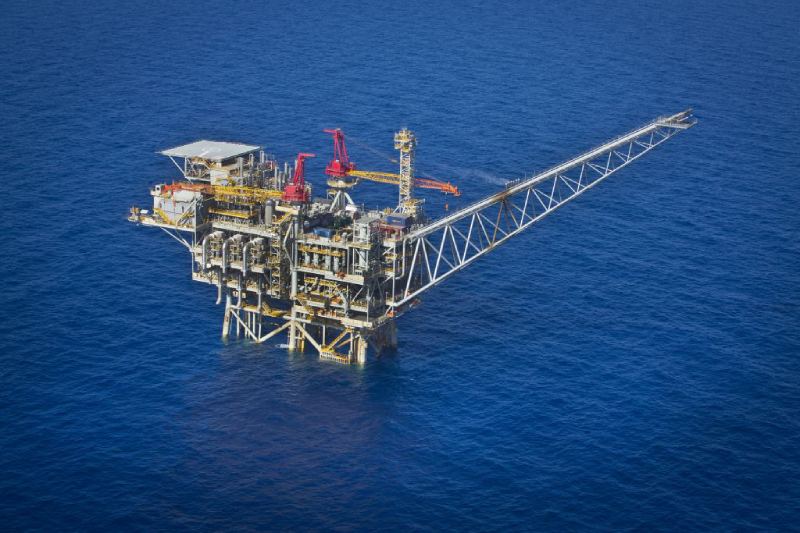
Chevron Partners Approve a $24 Million Investment to Increase Gas Output at an Offshore Facility
- Business
- February 19, 2024
US energy behemoth Chevron and its partners in the Tamar reservoir off the country’s coast in the Mediterranean announced on Sunday that they will be investing $24 million to increase the offshore field’s capacity to produce natural gas.
The investment is a component of a two-phase plan to meet Israel’s energy demands and export gas to Egypt by increasing the Tamar field’s daily natural gas production capacity to around 1.6 billion cubic feet (BCF). The Tamar field is located west of Ashkelon.
The Tamar partners approved the so-called final investment decision (FID), which was required in order to move forward with the project’s second phase of expanding gas production.
According to Jeff Ewing, managing director of Chevron’s Eastern Mediterranean Business Unit, “reaching FID for Phase Two of Tamar’s expansion reflects Chevron’s ongoing commitment to partnering with the State of Israel to continue development of its energy resources for the benefit of domestic and regional natural gas markets.”
A 150-kilometer pipeline from the Tamar field to the platform will be installed during the project’s initial phase. The changes are anticipated to enable the daily production of 1.2 billion cubic feet of natural gas, an increase from the present 1.1 billion cubic feet. Both stages’ construction is expected to be finished in 2025, requiring a $673 million total expenditure.
In addition to operating the Tamar gas field, Chevron owns a 25% share in it. Isramco, which owns 28.75% of the rights in Tamar, is one of the partners in the Israeli gas reservoir. Other partners include Tamar Petroleum, which owns 16.75% of the rights, Tamar Investment 2, which owns 11% of the rights, Dor Gas, which owns 4% of the rights, and Everest, which owns 3.5%.
The approval of the expenditure comes after the gas field partners declared on Friday that they had signed a new gas sales contract with Blue Ocean Energy, Tamar’s Egyptian gas importer.
The approval of the investment follows the announcement made on Friday by Tamar’s Egyptian gas importer, Blue Ocean Energy, that they had successfully negotiated a new gas sales agreement.
In accordance with the agreement, Egypt will receive an extra 4 billion cubic meters (BCM) of natural gas annually from the Tamar partners for a period of 11 years, or roughly 43 BCM. Currently, the Tamar reservoir sends roughly 2 BCM annually to Egypt. As to the agreement, the supply of gas exports will start on July 1, 2025.
The extension of Tamar’s natural gas exports to Egypt was approved by Israel in 2023.
The domestic market will receive about one-third of the extra natural gas generated from the Tamar rig in order to meet its energy needs.The field’s total natural gas output is expected to rise by 60% by 2026, or 6 BCM per year.
Following the terror attack by Hamas on October 7, and with intense rocket fire from the Gaza Strip continuing to hammer the south and center of the country, the Tamar platform, off the coast of Ashkelon, was closed for five weeks. Mid-November saw the start of drilling at the offshore gas field again. The largest natural gas platform in the country, Leviathan, is situated off the northern shore of Haifa and was operational during the war.
In an area with limited natural resources, Israel’s natural gas activities have recently set the nation on the route to energy independence and protected it from the worst of the energy crisis brought on by Russia’s war on Ukraine.
While natural gas began to flow in 2013 in the adjacent Tamar, which contains around 10 trillion cubic feet (TCF) of natural gas—half of the quantity housed in Leviathan—the Leviathan gas field began pumping on December 31, 2019.
A memorandum of understanding was signed in June 2022 by Israel, Egypt, and the European Union, allowing Israel to export natural gas to the union for the first time. The agreement states that the EU will get Israeli gas from Egypt’s liquefied natural gas (LNG) facilities.